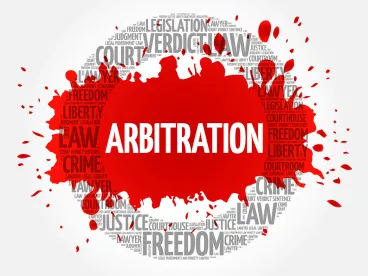On July 10, 2017, the Consumer Financial Protection Bureau (CFPB) issued its final rule precluding class action waivers in arbitration agreements in many consumer financial services contracts. The much-anticipated final rule comes more than a year after the CFPB issued its proposed rule, which was based on the CFPB’s March 2015 study of consumer arbitration required by Section 1028 of the Dodd-Frank Act. The CFPB received over 110,000 comments to its proposed rule, and notwithstanding strong opposition from the financial services industry, on July 10, the CFPB issued a final rule that is largely unchanged from the proposed rule. For our discussion of the CFPB’s proposed arbitration rule, please download our client alert from May 2016.
The final rule applies to the major markets for consumer financial products and services overseen by the CFPB, including those that lend money, store money and move or exchange money. It prohibits the providers of these consumer financial products and services from using an agreement with a consumer that provides for arbitration of any future dispute between the parties to bar the consumer from filing or participating in a class action, concerning the covered consumer financial product or service. The final rule also requires covered providers that are involved in an arbitration pursuant to a pre-dispute arbitration agreement to submit specified court and arbitral records to the CFPB. The CFPB intends to publish redacted arbitration records on its website, starting in July 2019.
The final rule takes effect 60 days after publication in the federal register and applies to agreements entered into 180 days after the effective date. In other words, unless opponents can successfully stop the final rule from taking effect, the date by which covered providers must be in compliance with the final rule will likely fall sometime in mid-March 2018.
There has been much speculation as to whether the CFPB would move forward with the final rule, given the efforts by the Trump administration and House Republicans to rein in the CFPB’s powers. Since the final rule was issued on July 10, a number of trade organizations, including the US Chamber of Commerce and the American Bankers Association, have called on Congress to repeal the final rule under the Congressional Review Act (CRA). This Republican-controlled Congress has successfully utilized the
CRA to repeal 14 rules issued under the Obama administration. Congress has 60 legislative days from publication in the federal register to act, and the timing of the CFPB’s final rule suggests that the CFPB anticipates that Congress will be too preoccupied in the near future with healthcare, tax reform, the budget and the Russian investigation to focus on this arbitration rule. We will see shortly whether the CFPB’s gamble pays off.
Mandatory arbitration clauses containing class action waivers are an almost universal feature of pre-dispute agreements in the consumer financial services industry. As a result, the number of class actions that survive a motion to compel individual arbitration has so far been limited. The CFPB’s final rule, which effectively removes the financial services industry from the protection of the Supreme Court’s ruling in AT&T Mobility v. Concepcion, 563 U.S. 333 (2011), would almost certainly result in a dramatic increase in a
provider’s class action exposure.
Providers are advised to continue to use and enforce arbitration agreements, where appropriate, until the compliance date for the final rule but also to evaluate their class action risk as early as practicable and consider all other available procedural and substantive means to demonstrate that class treatment of plaintiffs’ claims is not appropriate.




 />i
/>i
